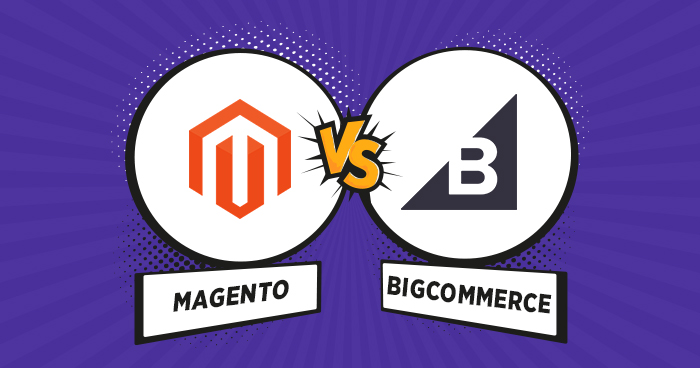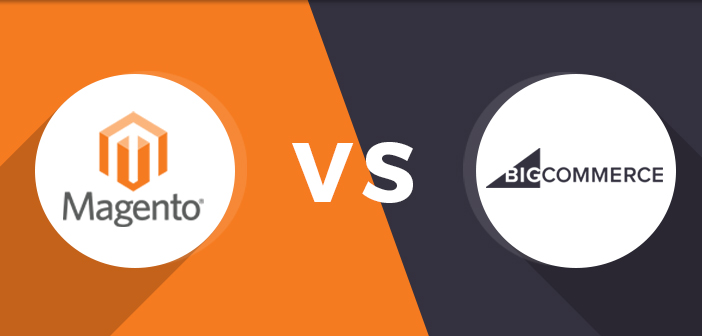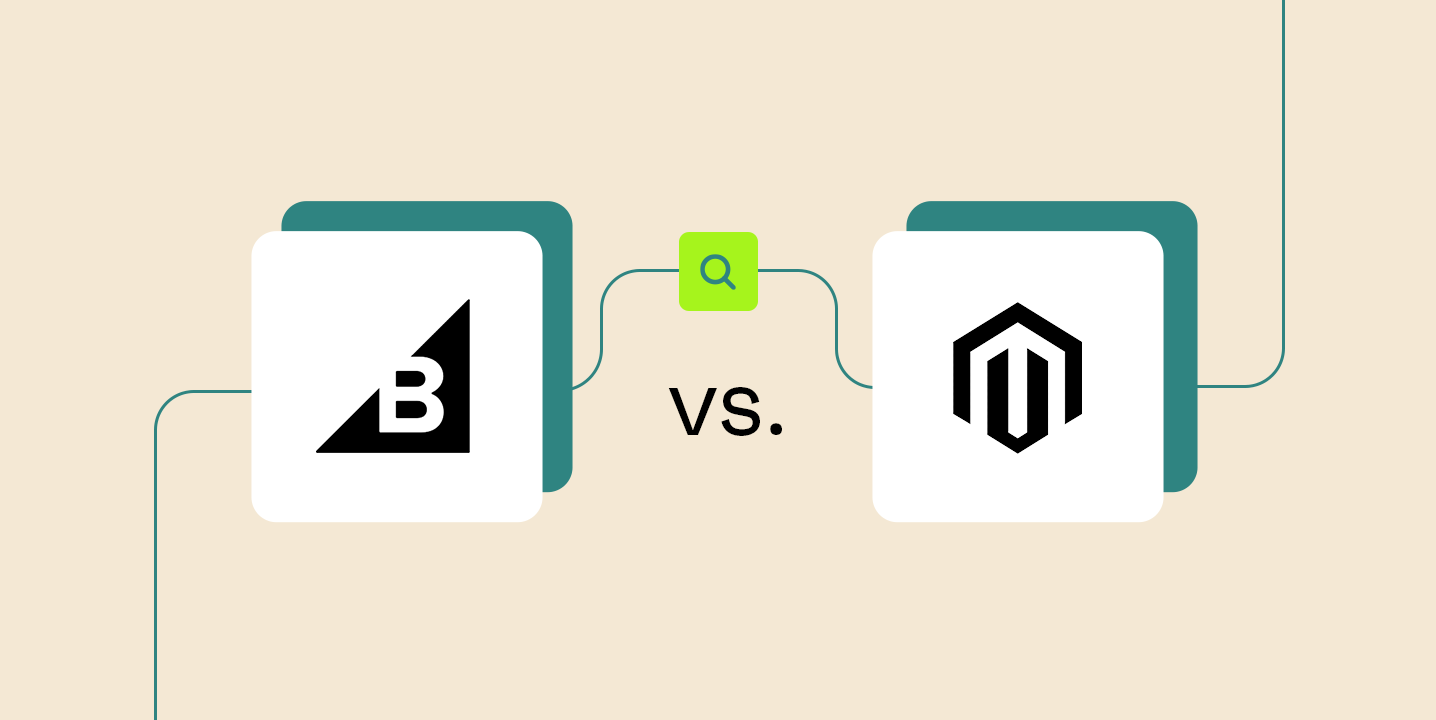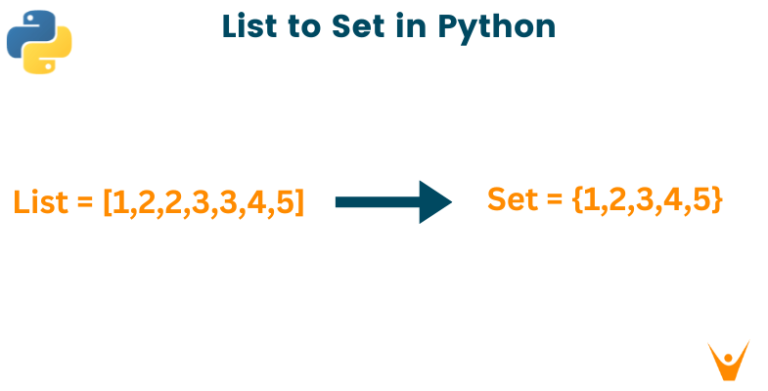Magento vs BigCommerce: Which Ecommerce Platform Fits Your Business in 2024?
If you are planning to start or grow your online store in 2024, you might be wondering which ecommerce platform to choose. There are many options available, but two of the most popular and powerful ones are Magento and BigCommerce. Both platforms have their own strengths and weaknesses, and they cater to different types of businesses and needs. So, how do you determine which option is suitable for you? In this article, we will compare Magento vs BigCommerce on various aspects, such as features, pricing, ease of use, scalability, and support. By the end of this article, you will have a clear idea of which platform suits your business goals and expectations.
Magento vs BigCommerce: An Overview
Magento and BigCommerce are both ecommerce platforms that allow you to create and manage your online store. However, they differ in how they operate and what they offer. Here is a brief overview of each platform:
- Magento is an open-source platform that you can download and install on your own server. You have full control and ownership of your store, but you also need to handle the hosting, security, and maintenance yourself. Magento is highly customizable and flexible, but it also requires a lot of technical skills and resources.
- BigCommerce is a hosted platform that provides everything you need to run your store on the cloud. You don’t have to worry about the hosting, security, or maintenance, but you also have less control and ownership of your store. BigCommerce is user-friendly and feature-rich, but it also has some limitations and costs.
Magento vs BigCommerce: Features
One of the most important factors to consider when choosing an ecommerce platform is the features that it offers. You want a platform that can support your store functionality, design, and performance. Here are some of the key features that Magento and BigCommerce provide:
- Product management: Both platforms allow you to add, edit, and organize unlimited products and categories. You can also create product variations, options, and bundles. Magento has more advanced features, such as custom attributes, configurable products, and inventory management. BigCommerce has more built-in features, such as product reviews, wish lists, and gift certificates.
- Store design: Both platforms let you customize your store appearance and layout. You can choose from a variety of themes, or create your own using HTML, CSS, and JavaScript. Magento has more flexibility and options, but it also requires more coding skills. BigCommerce has more simplicity and convenience, but it also has less freedom and creativity.
- Marketing and SEO: Both platforms help you promote your store and optimize it for search engines. You can use tools such as coupons, discounts, email marketing, social media integration, and analytics. Magento has more SEO capabilities, such as URL rewrites, meta tags, and sitemaps. BigCommerce has more marketing features, such as abandoned cart recovery, product comparison, and Google Shopping.
- Payment and shipping: Both platforms support multiple payment and shipping methods and providers. You can accept credit cards, PayPal, Stripe, and more. You can also offer free shipping, flat rate, or real-time rates from carriers such as UPS, FedEx, and USPS. Magento has more payment and shipping options, but it also charges transaction fees. BigCommerce has fewer payment and shipping options, but it also waives transaction fees.
Magento vs BigCommerce: Pricing
Another crucial factor to consider when choosing an ecommerce platform is the pricing and the value that it offers. You want a platform that fits your budget and provides a good return on investment. Here are some of the pricing details of Magento and BigCommerce:
- Magento has two editions: Magento Open Source and Magento Commerce. Magento Open Source is free to download and use, but you have to pay for the hosting, security, maintenance, and extensions. Magento Commerce is a premium edition that includes more features, support, and cloud hosting, but it also has a high annual fee that depends on your revenue. Magento also charges a percentage of your sales as transaction fees, which can add up quickly.
- BigCommerce has four plans: BigCommerce Standard, BigCommerce Plus, BigCommerce Pro, and BigCommerce Enterprise. BigCommerce Standard costs $29.95 per month, BigCommerce Plus costs $79.95 per month, BigCommerce Pro costs $299.95 per month, and BigCommerce Enterprise has a custom price that depends on your needs. BigCommerce also has a sales threshold for each plan, which means that you have to upgrade your plan if you exceed a certain amount of revenue. BigCommerce does not charge any transaction fees, which can save you money.
Magento vs BigCommerce: Ease of Use
Another important factor to consider when choosing an ecommerce platform is the ease of use and the learning curve that it involves. You want a platform that is easy to set up, manage, and customize, without requiring too much technical skills or time. Here are some of the ease of use aspects of Magento and BigCommerce:
- Magento is a complex and powerful platform that requires a lot of technical knowledge and expertise. You have to install, configure, and update the software yourself, as well as deal with the hosting, security, and maintenance issues. You also have to code or use extensions to customize and enhance your store functionality and design. Magento has a steep learning curve and a high level of difficulty, which can be overwhelming and frustrating for beginners and non-techies.
- BigCommerce is a simple and user-friendly platform that does not require any coding or installation. You can sign up, choose a theme, and start adding products and settings to your store. You can also use the drag-and-drop editor, the app store, and the support resources to customize and improve your store functionality and design. BigCommerce has a gentle learning curve and a low level of difficulty, which can be appealing and convenient for beginners and non-techies.
Magento vs BigCommerce: Scalability and Support
The last factor to consider when choosing an ecommerce platform is the scalability and support that it offers. You want a platform that can grow with your business and provide you with the help and guidance that you need. Here are some of the scalability and support aspects of Magento and BigCommerce:
- Magento is a scalable and flexible platform that can handle large and complex stores. You can add unlimited products, categories, and customers, as well as integrate with various third-party services and applications. You can also customize and optimize your store performance and functionality to suit your needs. However, Magento does not provide much support or assistance, unless you pay for the Magento Commerce edition or hire a developer or an agency. You have to rely on the community forums, the documentation, or the extensions for help and solutions.
- BigCommerce is a scalable and reliable platform that can handle high-volume and fast-growing stores. You can add unlimited products, categories, and customers, as well as integrate with various third-party services and applications. You can also use the built-in features and tools to improve your store performance and functionality. BigCommerce also provides a lot of support and assistance, regardless of your plan or edition. You can access the 24/7 phone, email, and chat support, as well as the help center, the blog, the webinars, and the guides for help and tips.
Conclusion
We hope this article has helped you compare Magento and BigCommerce and decide which ecommerce platform fits your business in 2024. If you need any help with your ecommerce project, or if you are looking for a web development service, you can contact ONextDigital. We are a professional ecommerce agency that specializes in Magento and BigCommerce development, design, and optimization. We can help you create a stunning, fast, and secure ecommerce store that meets your business goals and exceeds your expectations. Contact us to get free consultation.







